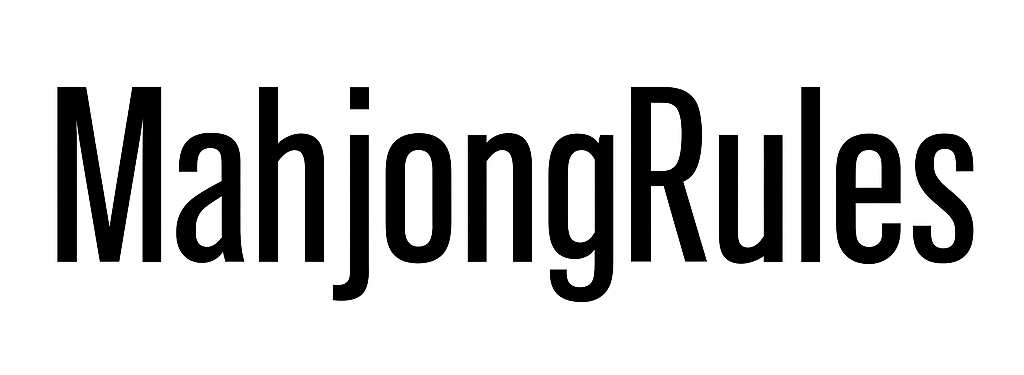You’re one tile away from a decent hand. You draw, glance at your options, and toss a tile to the discard pile. Then – bam. The player across the table shouts Mahjong! and grins like they planned your mistake all along.
Welcome to the painful lesson of Mahjong defense.
I’m Connor, and I’ve been burned enough times to know: knowing how to win is important – but knowing how not to losemight matter more. This guide will show you how to protect yourself from giving away a win, especially in live or online Mahjong play where every discard counts.
What Is Defensive Play in Mahjong?
Defensive Mahjong is all about avoiding risky discards that could help opponents complete their hands. Instead of focusing solely on your own win, you’re also reading the table, identifying danger zones, and prioritizing safe play.
It’s like driving in rush hour traffic – you might have a destination, but survival is the real skill.
Key Concepts of Mahjong Defense
1. The Art of Safe Discards
A safe discard is a tile that’s unlikely to help your opponent win. In many Mahjong variants – especially Japanese Riichi and Chinese Classic – players learn to spot and prioritize safe tiles.
Some key markers of safety:
- Tiles that have already been discarded multiple times
- Edge tiles (like 1s and 9s) near the endgame
- Winds and dragons that don’t match exposed melds
Connor’s Take: “When in doubt, throw out what others throw out. If three players pass on a 3 Bamboo? You can probably trust it.”
2. Watching Opponent Patterns
Keep track of:
- What suits they’re collecting
- Which tiles they call vs. pass
- How many tiles they’ve exposed
If someone calls a pung of red dragons and then discards 2s and 3s of characters, they’re probably not in that suit anymore – don’t help them get back in.
Connor’s Take: “I once gave away a win by tossing a 7 Dot after someone discarded the 1–6 in the same suit. Rookie move. Never again.”
3. Fold When You’re Falling Behind
Sometimes, your hand isn’t shaping up, but someone else clearly is. This is when you fold – you stop trying to win and play to survive.
Focus on:
- Holding safe tiles
- Avoiding calls
- Discarding what others have discarded
It’s not glamorous, but it saves points and dignity.
Connor’s Take: “Learning when to fold changed my game completely. I went from ‘always chasing’ to ‘rarely feeding wins.’ And that’s huge.”
4. Endgame Strategy: Play the Clock
In the final few draws:
- Stick to previously discarded tiles
- Avoid middle tiles (like 4s, 5s, 6s), which are the most dangerous
- If you can, stall with a kong or chow to reduce the number of discards
The goal is to survive the last few rounds without giving away the game.
Variant-Specific Tips
American Mahjong
- The NMJL card gives you a head start on identifying probable hands.
- Keep track of which hands require concealed play vs. open.
- Watch for jokers: their exposure is a tell-tale sign of where someone is headed.
Connor’s Take: “When I see someone exposing jokers for dragons or winds early, I hold those tiles tight like they’re gold bars.”
Chinese Mahjong
- Defense is about efficiency and timing.
- Avoid discarding near exposed melds.
- Middle tiles are dangerous late in the game.
Riichi Mahjong
- Learn suji and genbutsu (safe tiles based on discard logic)
- Once someone declares Riichi, assume they’re tenpai (one tile away)
- Discard defensively unless you’re also close to winning
FAQs: Mahjong Defensive Strategy
What’s the safest tile to discard?
Usually, tiles that have already been discarded by others are safest. Edge tiles like 1s and 9s are often less risky than middles.
How do I know if someone is close to winning?
Watch for aggressive discarding, early melds, or Riichi declarations (in Japanese Mahjong). Also, check if someone is holding back and avoiding discards – they might be waiting for a final tile.
Should I always play defensively?
Not always. Defense matters most when:
- You’re behind in points
- You see an opponent closing in
- You’ve passed the midgame with no clear path to a win
Can I turn a defensive hand into a win?
Yes – if your safe discards happen to fit a hand or you draw into something valuable. Just be careful not to take unnecessary risks to chase it.
Does defensive play work in fast-paced online Mahjong?
Absolutely. In fact, good defensive habits often separate seasoned players from casual ones in quick online games.
Final Thoughts
Connor’s Final Word: “Mahjong isn’t just about winning – it’s about not losing stupidly. Defensive play is the shield that lets your sword shine when the time is right.”
Mastering the basics of mahjong defense will instantly elevate your game. You’ll lose less, frustrate your opponents more, and walk away feeling like you played smart – even if the tiles weren’t on your side.
